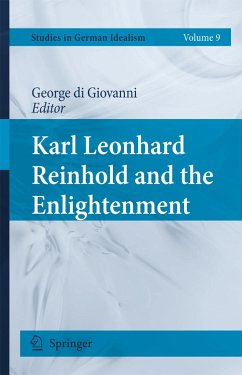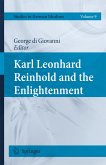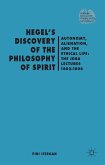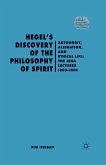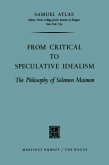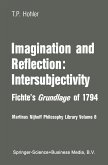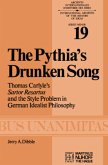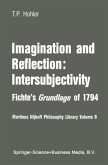Karl Leonhard Reinhold (1757-1823) is a complex figure of the late German Enlightenment. Sometime Catholic priest and active Mason even when still a cleric in Vienna; early disciple of Kant and the first to try to reform the Critique of Reason; influential teacher and prolific author; astute commentator on the immediate post-Kantian scene; and at all times convinced propagandist of the Enlightenment--in all these roles Reinhold reflected his age but also tested the limits of the values that had inspired it. This collection of essays, originally presented at an international workshop held in Montreal in 2007, conveys this multifaceted figure of Reinhold in all its details. In the four themes that run across the contributions--the historicity of reason; the primacy of moral praxis; the personalism of religious belief; and the transformation of classical metaphysics into phenomenology of mind--Reinhold is presented as a catalyst of nineteenth century thought but also as one who remained bound to intellectual prejudices that were typical of the Enlightenment and, for this reason, as still the representative of a past age. The volume contains the text of two hitherto unpublished Masonic speeches by Reinhold, and a description of recently recovered transcripts of student lecture notes dating to Reinhold's early Jena period.
From the reviews:
"A very welcome addition to the hitherto sketchy critical literature on Reinhold. ... Giovanni portrays Reinhold's adherence to the abstract ideals of the classical enlightenment as in tension with just those features of post-Kantian idealism ... . invaluable for anyone wanting to understand both the architecture and dynamics of Reinhold's views ... . we should not ignore its apparently intended status as an historically particular and specifically targeted intervention within the pedagogy of humankind, informed by an historical conception of reason and its changing needs." (Paul Redding, Philosophy in Review, Vol. XXXI (4), 2011)
"A very welcome addition to the hitherto sketchy critical literature on Reinhold. ... Giovanni portrays Reinhold's adherence to the abstract ideals of the classical enlightenment as in tension with just those features of post-Kantian idealism ... . invaluable for anyone wanting to understand both the architecture and dynamics of Reinhold's views ... . we should not ignore its apparently intended status as an historically particular and specifically targeted intervention within the pedagogy of humankind, informed by an historical conception of reason and its changing needs." (Paul Redding, Philosophy in Review, Vol. XXXI (4), 2011)

